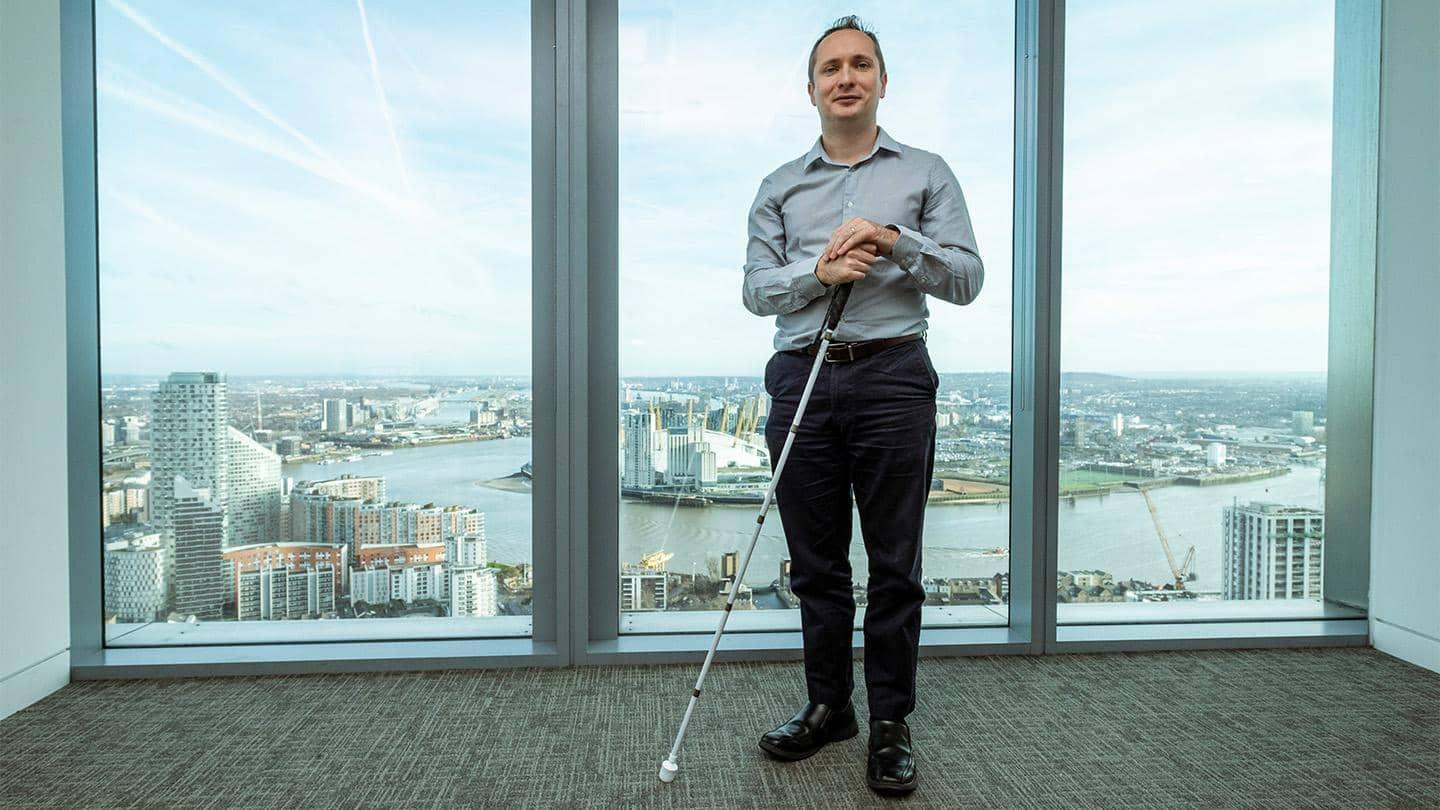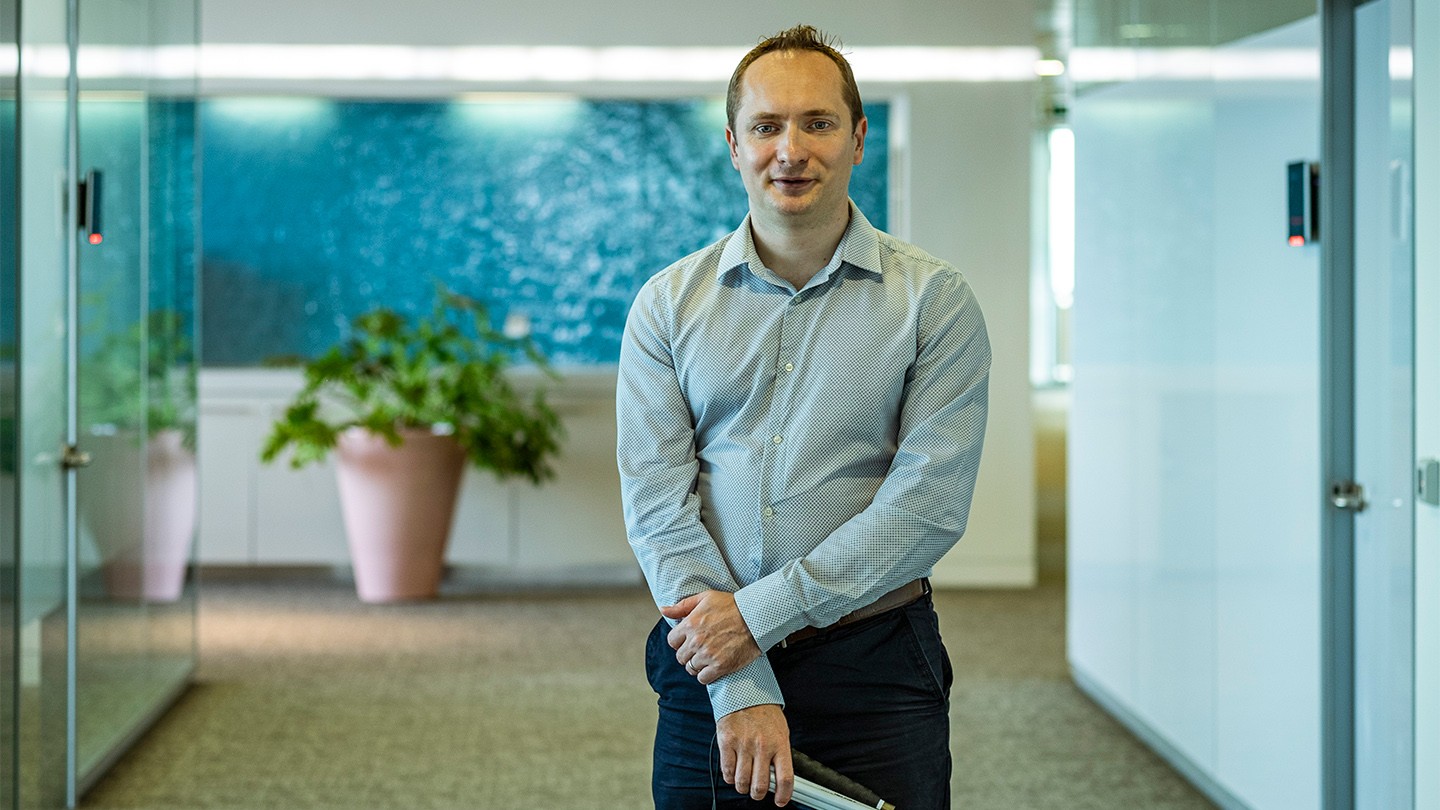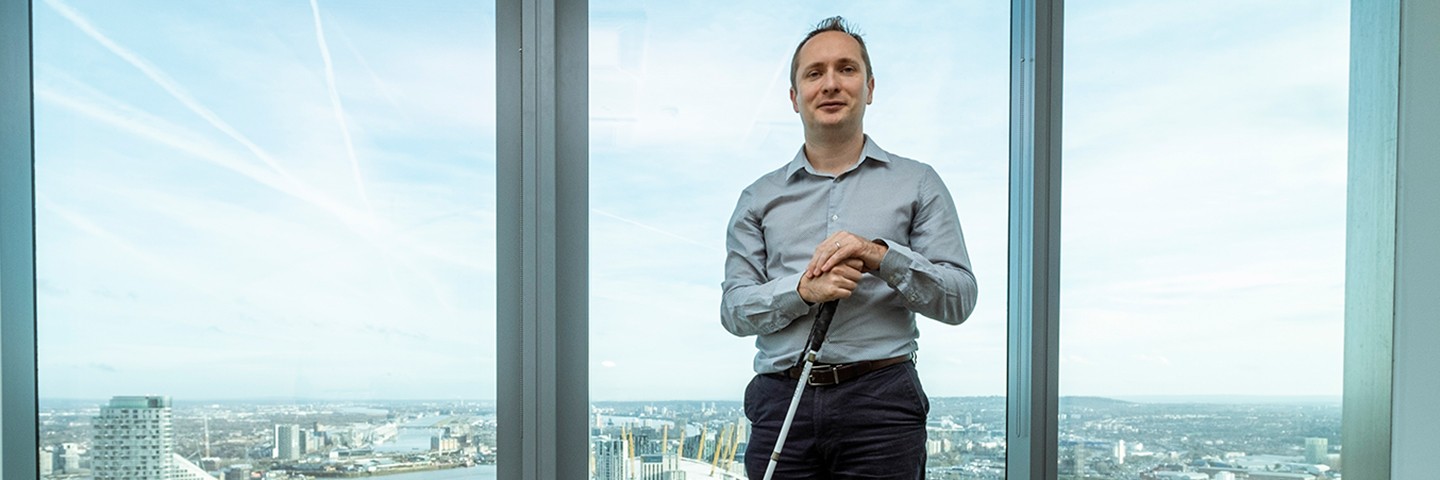
Culture
Leading Questions: Paul Smyth
Paul Smyth is Barclays’ Head of Digital Accessibility and was recently awarded an MBE in the New Year Honours list for services to disability inclusion and financial services. In the latest in our series on leadership, he reveals the three qualities that make a great accessibility leader, why big companies have a responsibility to offer more than “lip service” when it comes to disability – and why he’s proud to give “a voice to the voiceless” as a senior leader within the bank.
What makes a good leader?
Leadership for me isn’t about a formal title but about a set of actions and how people inspire, empower and help others. The best leaders are those who are more authentic and humble. They don’t have all the answers.
To be a great leader on accessibility, you need three things – voice, prioritisation and partnerships. Giving a voice to the voiceless or hope to those feeling hopeless is about fighting for the rights of disabled people and influencing business leaders to improve or accelerate change. Prioritisation is about making tough choices and deciding what to focus on first. Partnerships are about seeking feedback by engaging the disability community, charities and partners to help identify problems and implement solutions. No one person or organisation has all the answers, so we need to stretch for insights, keep learning, collaborate and share what works.
What was your early work experience?
I lost most of my sight when I was a teenager, so entering the world of work was a challenge. Having work experience with a disability is quite difficult – it requires added thought. So, if you can believe it, I was a security guard at a UK department store. It came about because I’d done lots of martial arts, so the store thought I’d be a good fit. I was there, blind Paul, to try to stop shoplifters and help people to park. It was completely inappropriate, and a bit awkward.

Barclays is on the right path – we are changing what people become and leveraging technology to empower people to do more stuff.
Barclays’ Head of Digital Accessibility
What are the major challenges you’ve faced in your career?
My disability has shaped the subjects I was interested in. It was hard to read, so I naturally turned towards maths. I joined Barclays’ graduate scheme in 2003 and spent a decade working in finance. When I noticed the lack of other disabled colleagues or support available, I helped set up Reach – Barclays’ disability and mental health colleague network. I found this far more fulfilling than my day job, which was proving increasingly difficult due to new whizzy finance systems that were becoming more inaccessible for disabled people like me to use.
This came to a head when I had a chance encounter with the Head of IT and explained my intention to quit. He acknowledged the barriers I was facing but challenged me to think about the next disabled colleague sitting where I was, pointing out that I was the ideal candidate to lead accessibility for the bank. He said that if I wanted things to change, I had to change them.
I pondered whether it would be the only role I could do – disabled Paul pigeonholed in the disability role. The more I thought about it, though, the more I came to realise that it was a role only I could do, as someone who felt and faced these barriers on a daily basis.
How would you describe your leadership style?
A lot of what I do is giving a voice to people who are ignored or overlooked. I lead a team of nine people and we deal with every aspect of making the bank accessible to people. More recently I’ve developed diabetes and had major spinal surgery, so I am even more aware of the difficulties faced by so many customers.
Which colleague has had the most influence on your business life?
I’d say Matt Hammerstein, CEO of Barclays Bank UK. He’s a senior leader and is incredibly good at listening, taking the time and being approachable. He’s a shining example.
What makes you proudest about your role at Barclays?
I am lifted up and shrunken down on a daily basis by the good and bad feedback we get from disabled and vulnerable customers. When we were the first bank to launch talking ATMs in 2012, to help people with little or no sight get cash out independently, that was a ‘wow’ moment.
More recently, I had a woman called Louise write to me. She complained that her son who was autistic and borderline non-verbal couldn’t buy stuff and asked what we could do to help. We sent him a contactless wearable bracelet.
A few weeks later, she told us that when he used the bracelet to pay for things and shopkeepers asked him what it was, he would come alive and explain. That’s what encourages me that Barclays is on the right path – we are changing what people can become and leveraging technology to empower people to do more.
If you had a magic wand, what would you change for people with disabilities in the UK?
I think for me it is quite frustrating that we’ve had disability discrimination laws for the last 30 years but things still aren’t really changing. The laws are changing but big companies need to do more than pay lip service – they need to treat it as a real problem. Many aren’t moving quickly enough, and I want that to change.

Barclays’ role in accessibility
Barclays has an ambition to be the most accessible and inclusive organisation in the FTSE 100 by creating innovative services that are accessible to all. The bank has launched high-visibility debit cards, fully accessible mobile apps, contactless wearable devices and more.
Read about Barclays’ full range of accessibility services.
Quickfire Q&A
How do you unwind?
I do yoga and Pilates. I’ve done a lot of martial arts, but now I’m getting older I can’t do so much hardcore stuff. My weekends are spent running around with my wife and two kids, who are nine and 11. As I’m visually impaired, they are incredible at describing the world around them. They’ve got a built-in audio-description to compensate for daddy who can’t see very well.
How important is work/life balance?
I admit I find it a challenge. There aren’t enough hours in the day, but it is something I am trying to be mindful of – making sure that there is family time. There are always lots of things you want to do but don’t have the capacity and resource to do it all.
Can you recommend us a book?
Why are You Pretending to be Normal? by Phil Friend. It contains a key piece of advice for me – why spend so much time trying to fit in when you could be yourself and stand out?